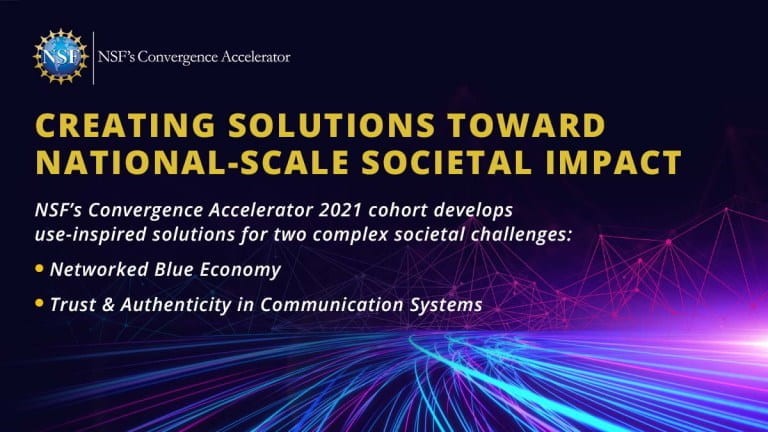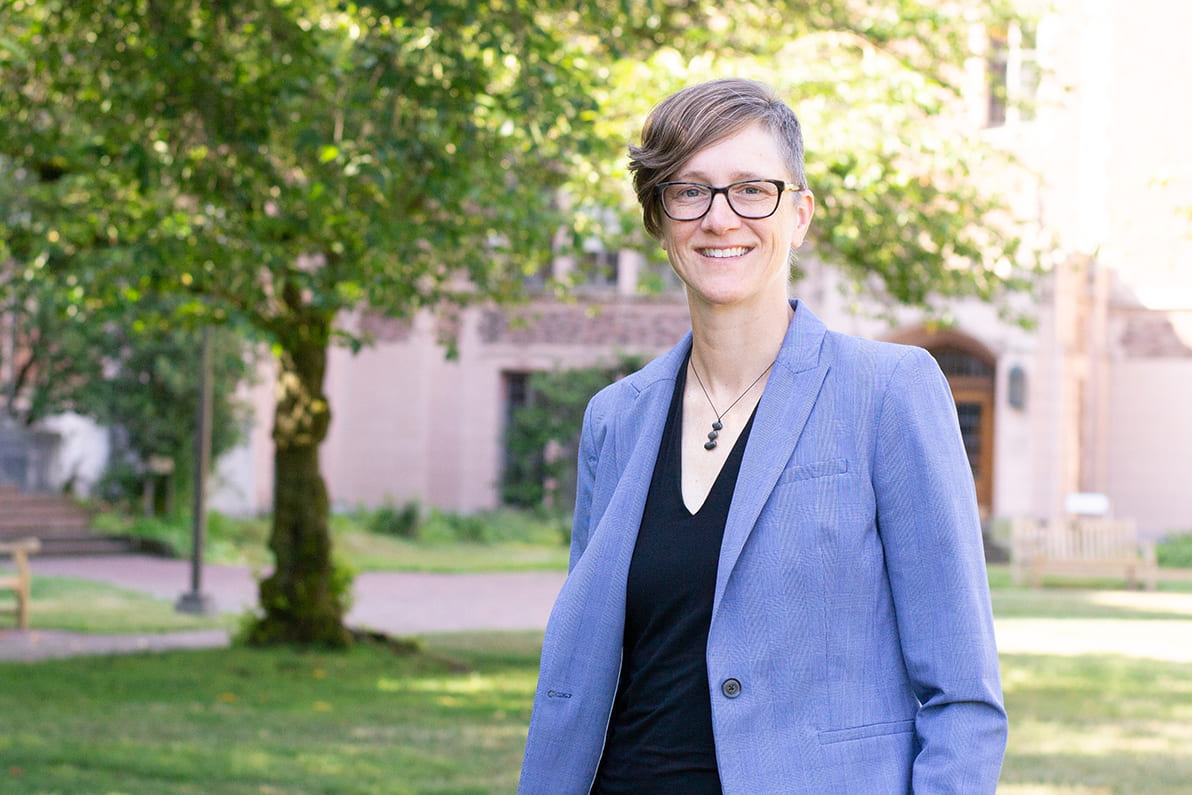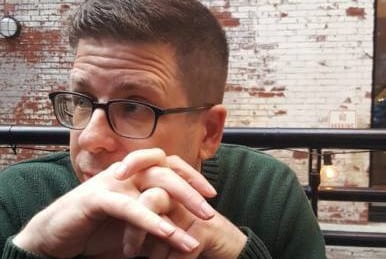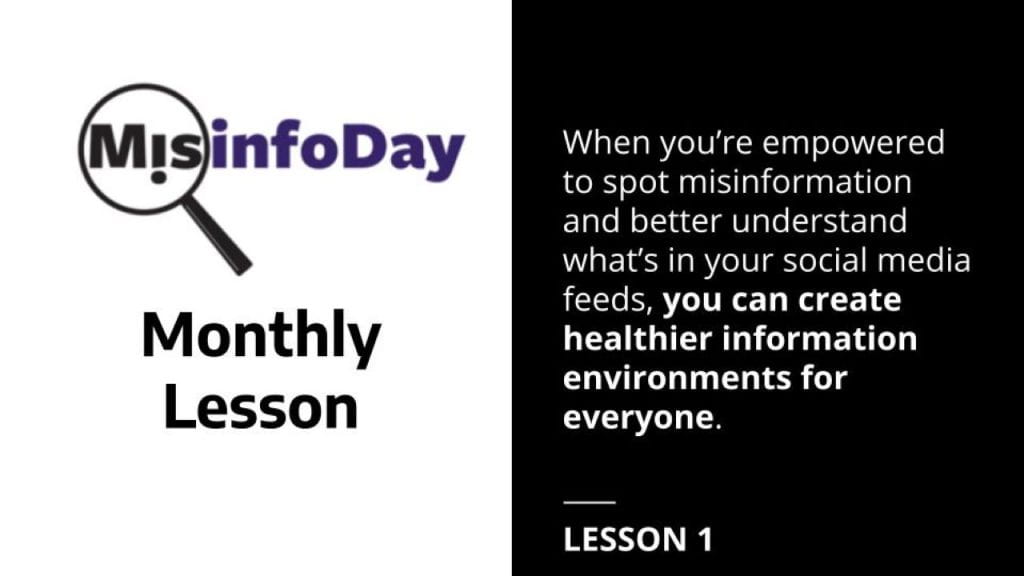This is a web version of the Center for an Informed Public‘s News & Insights newsletter for September-October 2021, which was sent out on October 13. Check out our newsletter archives. Not signed up to receive the CIP’s newsletter? Sign up here.
HCDE associate professor Kate Starbird starts 2-year term as CIP’s faculty director
In September, UW Information School associate professor Jevin West‘s two-year term as the Center for an Informed Public‘s faculty director came to a close as the center’s faculty directorship transitioned to Kate Starbird, a UW Human Centered Design & Engineering associate professor and iSchool adjunct associate professor.
“The CIP’s mission of understanding and mitigating misinformation has only become more vital during these times of sustained disruption and uncertainty — especially as individuals are struggling to adapt to a changed and changing information environment,” said Starbird, who studies crisis informatics, collective sensemaking and rumoring around crisis events and the dynamics of mis- and disinformation.

Research collaboration studying inclusive digital literacy interventions led by UW iSchool and UT Austin selected for National Science Foundation’s Convergence Accelerator program
The “Co-designing for Trust: Reimagining Online Literacies With Underserved Communities” project team, which is one of 28 teams selected by the National Science Foundation‘s Convergence Accelerator program for its 2021 cohort, is composed of a multidisciplinary set of researchers from the University of Washington‘s Information School and Center for an Informed Public, The University of Texas at Austin, Seattle Central College and Black Brilliance Research, will plan, facilitate and assess a series of seven community workshops that will focus on critical reasoning skills, the psychological and emotional aspects of misinformation and broader sociocultural dimensions of trust in information systems.
“We have established partnerships to ensure that perspectives that are overlooked within existing research are integrated into the core of our work,” said Jason C. Young, a UW iSchool senior research scientist and CIP research fellow who is co-leading the collaboration.
- Learn more about the “Co-designing for Trust” project …
- UW NEWS | 3 UW-led teams selected for NSF Convergence Accelerator program …
Mike Caulfield to lead CIP’s rapid-response research program
MisinfoDay Monthly video lesson: Creating healthier information environments
5 new UW doctoral students start work at CIP
RESEARCH NOTES
Vaccine misinformation research from UW iSchool cited in congressional letter to Amazon
“Auditing E-Commerce Platforms for Algorithmically Curated Vaccine Misinformation,” a paper co-authored by UW Information School PhD student Prerna Juneja and iSchool assistant professor Tanu Mitra, was cited in a Sept. 8 letter U.S. Rep. Adam Schiff wrote to Amazon CEO Andy Jassy about the company’s policies “regarding false or misleading health information in order to identify potential needs for federal regulation.”
***
- CIP co-founder Chris Coward, a senior principal research scientist at the UW iSchool who directs the Technology & Social Change Group, shared insights about a misinformation-themed online escape room during a Sept. 24 Media & Learning Association presentation. | Read more about Coward’s insights about the Euphorigen Investigation ...
- Consumer Reports, with support from the Alfred P. Sloan Foundation, has announced three public interest technology researchers as part of their 2021-22 Digital Lab Fellows cohort, including Franziska Roesner, a Paul G. Allen School of Computer Science & Engineering associate professor and CIP faculty member. As part of the fellowship, Roesner will develop research infrastructure to enable research of online advertising at scale and study the online ad ecosystem to support consumer protection and education. | Read more …
CIP’s Rachel E. Moran featured in CNBC segment on vaccine misinformation
INSIGHTS
Understanding the populist feedback loop
Following the recent CBS News “60 Minutes” interview with former Facebook researcher and whistleblower Frances Haugen, CIP director Kate Starbird, a UW Human Centered Design & Engineering associate professor tweeted an observation about how Haugen relayed “a comment from an EU politician about how optimizing for Facebook’s algorithms was causing political leaders to take more partisan positions. That’s the populist feedback loop.” Starbird continued: “We often focus on the effects of social media and its algorithms on the audiences, but it’s a two-way dynamic and we should perhaps be more focused on the effects on our political candidates and leaders.”
CIP IN THE NEWS
CIP’s Koltai: ‘There are a lot of people who are still reachable and at the end of the day, everyone wants to be healthy.’
In a feature in The Seattle Times about a surge of COVID-19 cases and hospitalizations in rural communities in central and eastern Washington, CIP postdoctoral fellow Kolina Koltai, who studies the anti-vaccine movement and vaccine misinformation, discussed how there’s a difference between someone who is vaccine hesitant and someone who is an anti-vaxxer. “There are a lot of people that are still reachable, and at the end of the day everyone wants to be healthy,” Koltai told The Seattle Times.
Koltai was also quoted recently in The New York Times, National Public Radio, The Intercept and Mother Jones.
“Vaccine misinformation is prevalent and can impact anyone. It does not matter necessarily how educated you are or how much background you have in health care,” Koltai said in an “Idaho Matters” interview on Boise State Public Radio, “anyone could fall subject to vaccine misinformation.”
In a separate Boise State Public Radio interview, CIP postdoctoral fellow Rachel E. Moran, who studies trust in information environments, and mis- and disinformation, said that in “times of crisis, we are more vulnerable to misinformation because we’re looking for answers. And the internet especially provides us with many different answers, depending on what rabbit hole we go down.”
Now Kalamazoo, a local news site in Kalamazoo, Michigan, recently interviewed Moran for an article about how a county commissioner’s anti-mask proposal was based on dubious claims. Moran said that ”misinformation is not only counter-productive to ending the pandemic but it’s especially worrying to see it being used by public officials to further ideological goals over the health of their communities.”
In an interview for a Poynter article examining the viral news site Real Raw News, Moran said that we “have this assumption that most people can spot that this is a fake news site, and therefore it’s not impactful. But I just don’t think that’s the case anymore.”
***
- In a Wired article about the challenges of predicting where the COVID-19 pandemic is heading, UW Department of Biology professor and CIP faculty member Carl Bergstrom noted: “People dramatically change their behavior during an ongoing pandemic,” Bergstrom said. “We constantly update our beliefs about how serious this is.” [Wired]
- CIP co-founder and UW Information School associate professor Jevin West was interviewed on KING5-TV in Seattle for a segment about the impacts of the Oct. 4 Facebook outage. [KING5]
- GeekWire featured comments West made during a late September Washington Academy of Sciences “COVID-19: Science and Society” symposium. [GeekWire]
- West was also interviewed by KXLY-TV in Spokane about the importance of thinking more and sharing less online. [KXLY]






